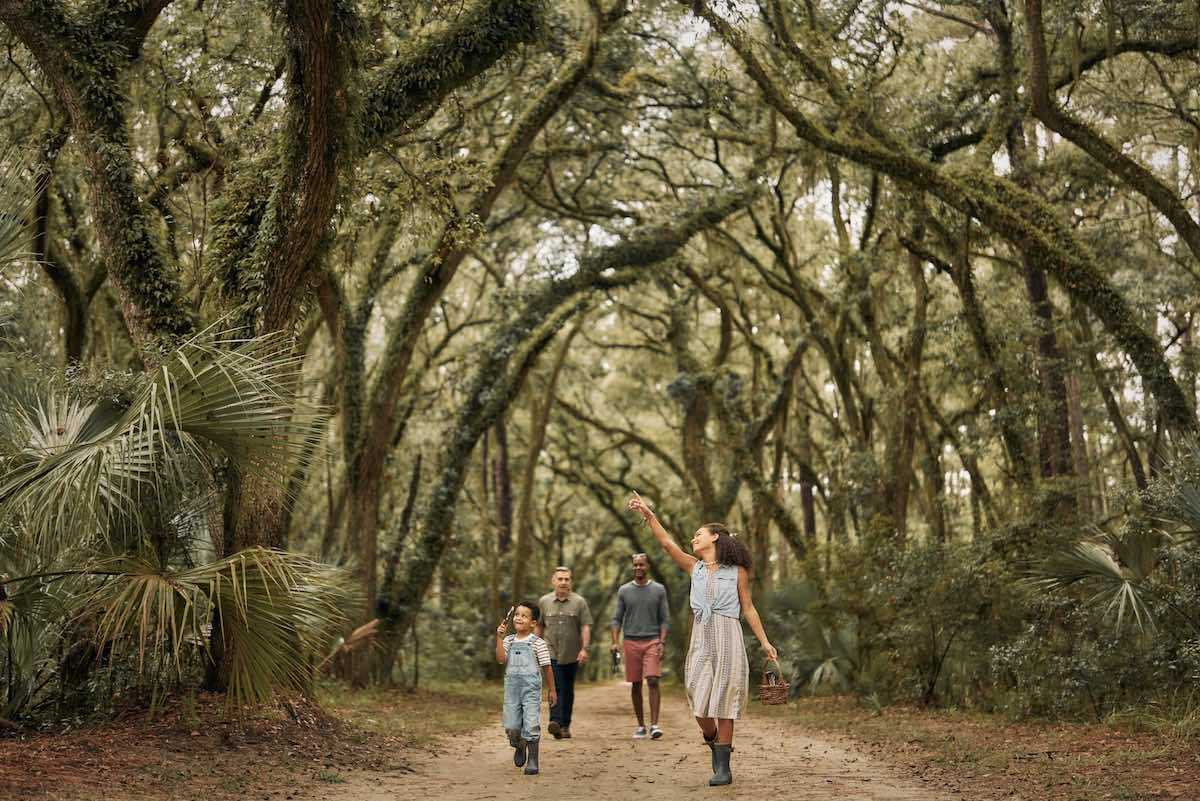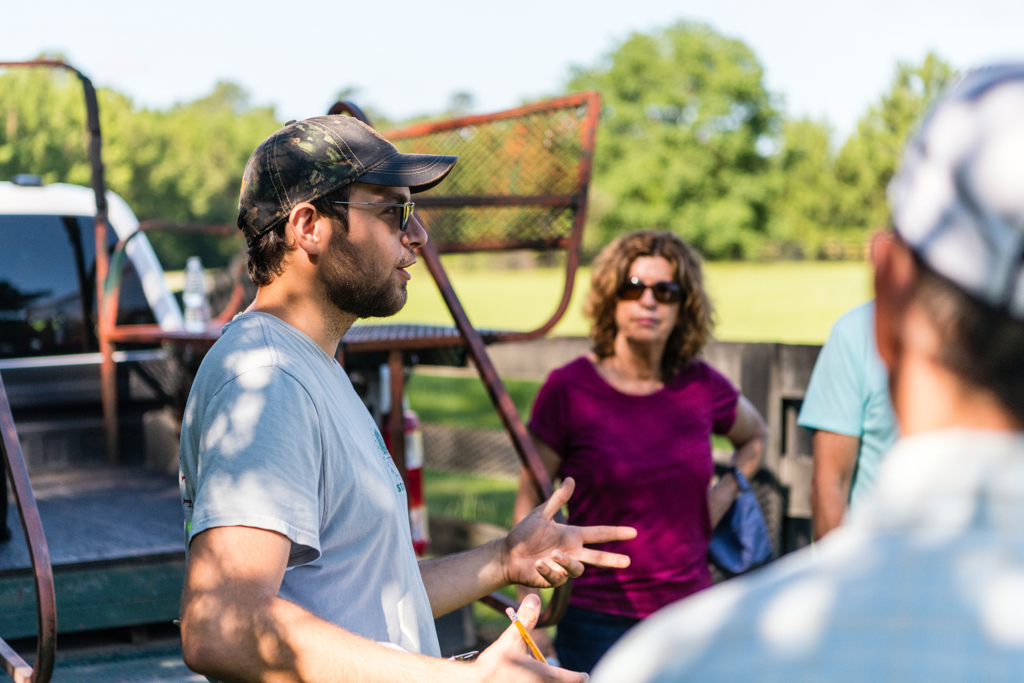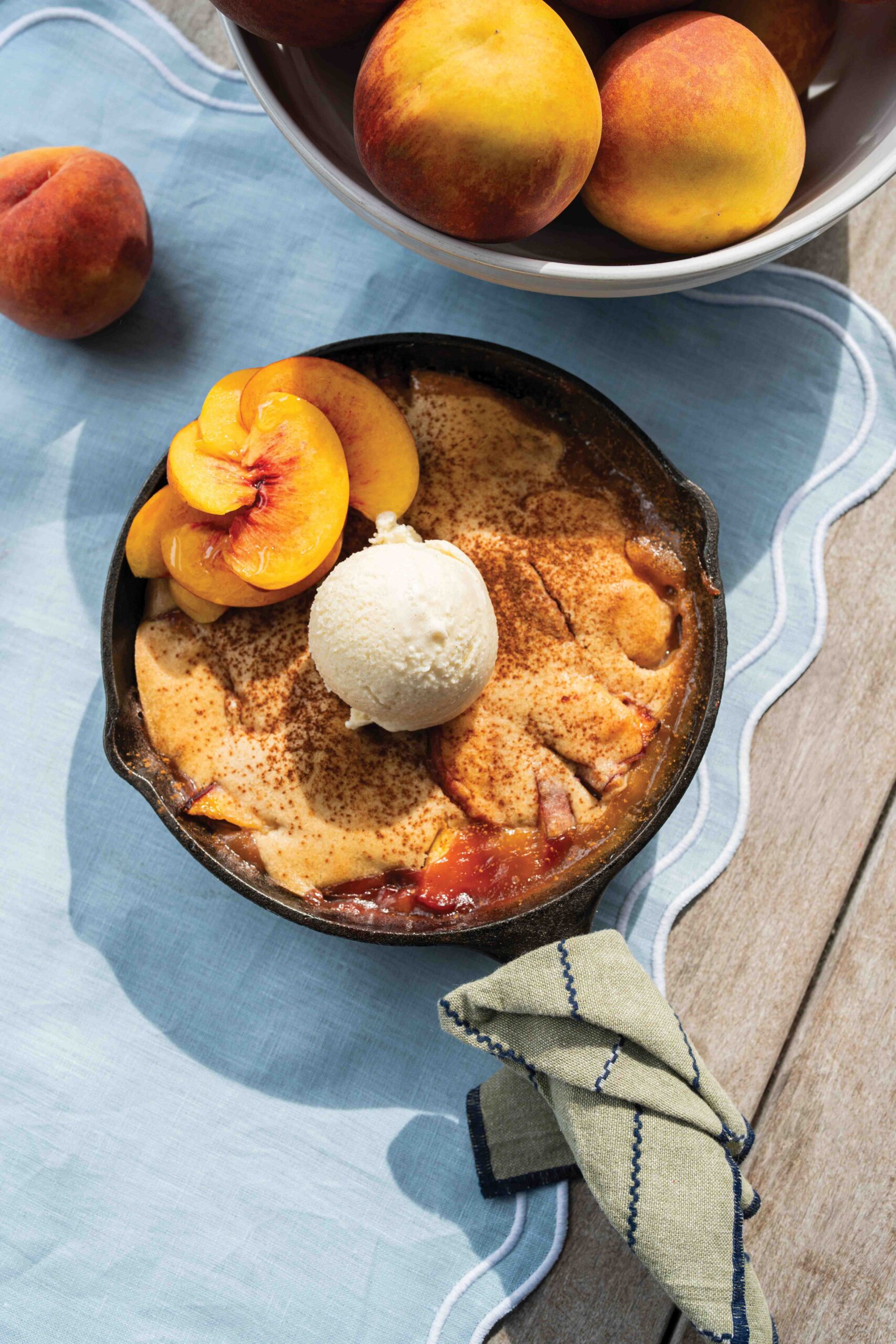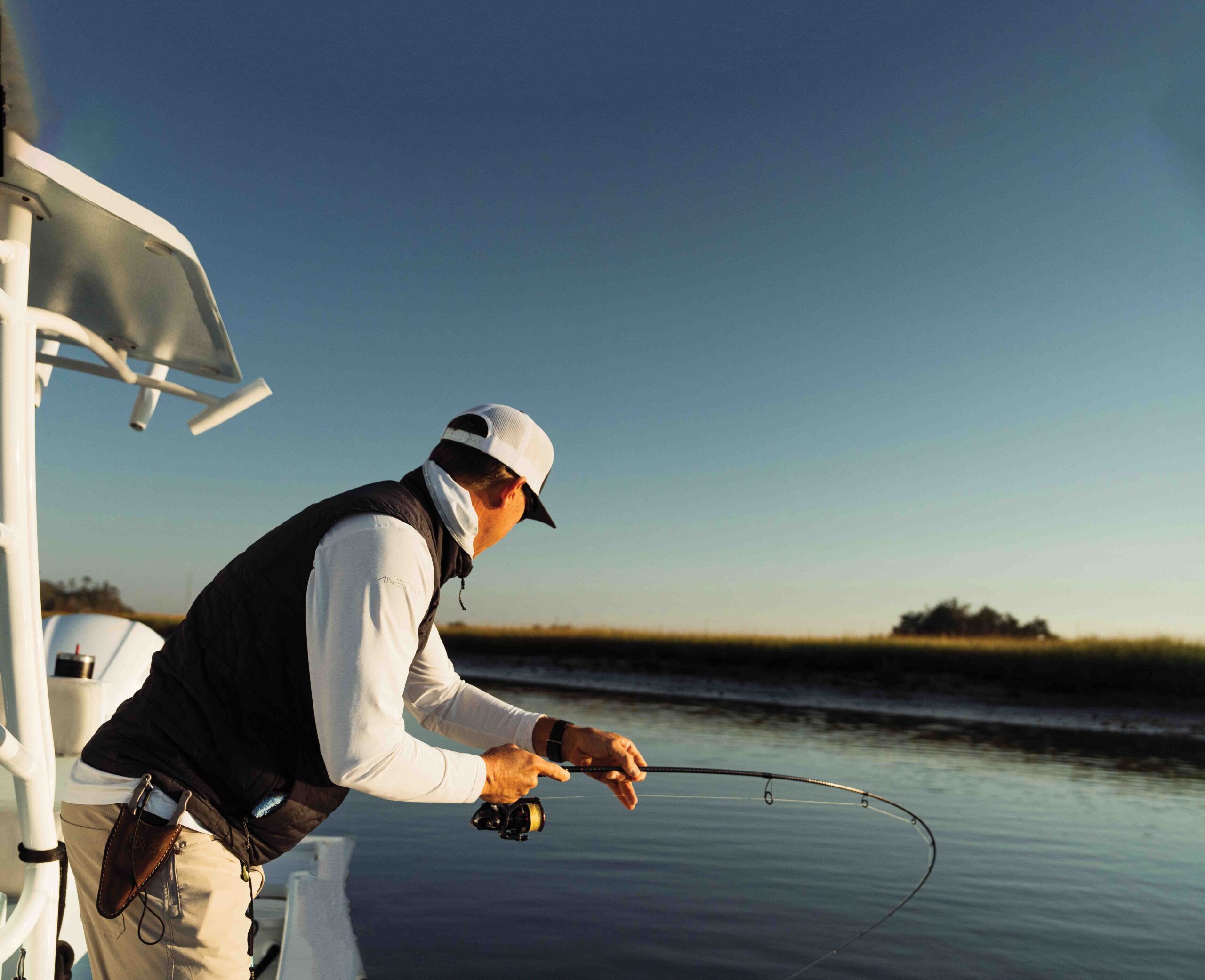Palmetto Bluff Real Estate Company Sales Office
Office Hours
Monday-Friday 9am - 5pm
Saturday 9am - 4pm
Sunday 12 - 4pm
Saturday 9am - 4pm
Sunday 12 - 4pm
Gardening is one of the most fulfilling activities that one can undertake. It is an excellent way to bond with nature and reap the rewards of your hard work. However, starting a garden can be a daunting task, especially if you are new to gardening. The good news is that with the right guidance, you can create a thriving raised garden bed in time for spring. In an interview with Shane Rahn, a seasoned gardener as well as the Palmetto Bluff Farm Manager, he shares his insights on how to create the best raised garden bed.
Raised garden beds offer several benefits over traditional in-ground gardens. According to Shane, one of the significant advantages is that raised garden beds provide better soil quality. Since you add the soil yourself, you have control over the quality and nutrients of the soil. Additionally, raised garden beds have better drainage, which is essential in preventing overwatering and root rot.
Easier maintenance is another significant benefit of raised gardens. They offer better accessibility, which means you can weed and harvest your garden without bending or kneeling for extended periods. Raised garden beds also help to reduce soil erosion, prevent soil compaction, and keep pests and weeds at bay.
To create the best raised garden bed, you need to ensure that you have the right components. Shane explains that you need to start with a frame. The frame can be made of various materials such as wood, bricks, or stones. He recommends not using treated wood as it can contain harmful chemicals. Instead, Shane opts for untreated wood like pine or cedar for the box. Using plastic allows your raised garden bed to retain more moisture, prevents significant erosion and weed growth, and keeps the bed soft.
The next essential component is the soil mix. Shane recommends using a mixture of topsoil, compost, and organic matter such as coco buffer. To go the extra mile, Shane advises taking a soil sample to determine the helpful nutrients that remain in your field after harvest and how well it produced growth. Furthermore, soil temperatures are integral to planting, especially in the spring. Plants grow faster in warmer soils so pay attention to the low temperatures and do not plant until the average is above what the minimum soil temperature is for the plant that you want to grow.
At the Community Garden in River Road neighborhood, Shane has 56 raised beds built with 2×12 timbers and promotes sub-irrigation, that way the water can properly drain. Shane also has four raised garden beds at The Farm that are sub-irrigated and certified organic. The farming practices at The Farm are similar to an above ground raised bed. Shane uses a machine that creates a raised bed, lays drip tape and then covers it all with plastic. The beds themselves are 18 inches deep and Shane says “the deeper the better.” This will allow your plants to thrive as they have room to properly grow.
The best plants for a raised garden bed depend on your location and the time of year. It’s important to consider plant hardiness as you can determine which plants will thrive. In Bluffton, the plant hardiness is in zone 8 which means it is one of the warmest growing climates as the summers are hot and the winters are mild. For planting in the spring, Shane recommends waiting to plant until the soil temperature is at a minimum of 60 degrees.
Spring vegetation like tomatoes, peppers, and watermelons like it to be hot, so Shane recommends waiting until at least late March to begin planting.
This spring at Palmetto Bluff, Shane will be planting:
Tomatoes
Peppers
Okra
Zucchini
Eggplant
Squash
Watermelon
Cantaloupe
Butter peas
Cucumber
And much more!
Finally, you should consider how you lay out your plants. Shane plants all of his vegetation approximately 24 to 30 inches apart for more space to breathe while the minimum 18 inches apart is recommended. The farther apart the plants are the better they will grow. If you plant too close together, the plants will still grow but you won’t get the optimum out of all your crops.
Before you start on your journey to have the best raised garden bed, there are a few things you should do before you plant such as:
Amending the soil a week prior to planting
Cultivating the soil by tearing it up with a garden ho (that way the older soil comes up to the top)
Figure out what you want to plant, the necessary materials, and when you want to plant
Tease the roots of your plants so they break up and can grow (only necessary on transplants)
Maintaining a raised garden bed requires regular care and attention. You don’t want to malnourish your raised garden bed, but you also don’t want to over-nurture it. Shane’s advice is to treat plants like people, “you don’t want to bother them too much, but give them a pat on the head every now and again.” Irrigate your plants slowly in the beginning, as the plants want to go to bed hot and dry, then fertilize them every four weeks, and then give them the space to grow on their own. You can start to water them more regularly once the plants start to bear fruit. It is also helpful to plant symbiotic vegetation, like tomatoes and peppers, close together as they will help each other grow.
For the best raised garden bed, you need to fertilize your plants regularly. Shane suggests using an organic fertilizer such as manure or compost, as they are gentle on your plants and provide the necessary nutrients. Or, you may spray your plants with organic chemical neem oil, just be sure to spray the entire plant. When spraying your plants, the weather plays a major role. If it is a hot and sunny day, spray them later in the afternoon. If the day is going to be more cloudy and cool, spray them first thing in the morning. In addition to changing the soil every four to five years, rotating your crops every year is just as important. Essentially, never sow a plant in the same place it was the year before will balance the nutrients in your soil and foster more growth.
Finally, you need to keep an eye on your plants for signs of pests and diseases. Shane has a high fence to prevent deer and raccoons from entering the bed, however, you can also use scarecrows to keep other animals that would be harmful to your plants away.
By following these tips, you’ll be well on your way to having a thriving raised garden bed for springtime. Remember to be patient, give your plants the right amount of care, and enjoy the fruits of your labor.
At the Bluff, it all begins with the land, and creating the best raised garden bed requires careful planning and attention to detail. With the guidance of experts like Shane Rahn and the resources available at Palmetto Bluff, you’ll be on your way to cultivating a thriving garden in no time. Don’t hesitate to reach out and take the first step towards your dream of having the best raised garden bed this spring.
To learn more about the Bluff and its other offerings, click the button below to get in contact with us!

Best Things to Eat in South Carolina’s Lowcountry When it comes to Southern cuisine, no place captures the heart (and appetite) quite like the South Carolina Lowcountry. Rooted in history and layered with coastal influence, this region serves up a culinary id...

Marissa’s Journey to Palmetto Bluff At Palmetto Bluff, hospitality goes beyond service; it’s a way of life. For Members and visitors alike, there’s a quiet charm to the place that draws you in, makes you feel at ease, and leaves a lasting impression. Few peop...

Top 7 Palmetto Bluff Nature Trails Do you ever get the feeling of wanting to escape and wander into a serene paradise? The nature trails at Palmetto Bluff afford opportunities to roam and admire the vastness of the Bluff’s 20,000 acres. Throughout the communi...

Palmetto Bluff’s Moreland Village feels a world away from the more traditional architecture of the iconi...

We are thrilled to introduce the inaugural winners of the Inspiring the Arts Scholarship—three extraordinary young women pursuing their artistic dreams through higher education! Katherine Donahue has been named our first official scholarship recipient, with Em...

From handmade jewelry to performance wear, the latest arrivals at Palmetto Bluff’s retail spots capture the season in true Lowcountry style. This summer, the Bluff’s shops are full of fresh finds, carefully chosen by our trusted retailers—including FLOW Galler...

Citizen Science is Thriving at Palmetto BluffDid you know that residents of Palmetto Bluff are playing a vital role in national and global conservation efforts—all from their backyard?Through the Palmetto Bluff Conservancy’s growing Citizen Science programs, c...

In October 2024, Grammy Award-winning musician Clay Ross visited Palmetto Bluff as part of The Arts Initiative's Artist in Residence Program. Through storytelling and song, he explores identity, heritage, and the universal language of sound. By Barry Kaufman ...

Palmetto Bluff Club Executive Chef Beth Cosgrove and Director of Culinary, Chef Rhy Waddington, Cook Up Four Peachy Recipes for a Summer in the South. Is there anything more iconic than a southern peach? A symbol of summer and Southern heritage, the peach car...

Following the tides and angling for redfish in Lowcountry creeks and estuaries with Captains Brian Vaughn and Will Stephens Story by Sandy Lang It is a sunny morning in October and the water is calm and glassy. The silence is punctuated by a gush of breath f...
Learn about the Palmetto Bluff Conservancy and how we keep the vision of our land in place.
On land or water, there is an ever-evolving variety of activities.
We do not attempt to independently verify the currency, completeness, accuracy or authenticity of the data contained herein. All area measurements and calculations are approximate and should be independently verified. Data may be subject to transcription and transmission errors. Accordingly, the data is provided on an “as is” “as available” basis only and may not reflect all real estate activity in the market”. © [2023] REsides, Inc. All rights reserved. Certain information contained herein is derived from information, which is the licensed property of, and copyrighted by, REsides, Inc.